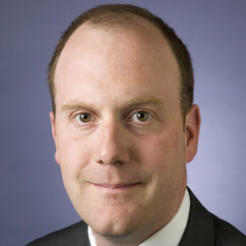The Church Commissioners awarded a £75,000 pay rise to its director of investments last year, bringing his total salary to £409,000, according to an annual report for the year to December 2014, published today.
The Church Commissioners for England is the charitable investment arm of the Church of England, and had 229 staff during the year. These included directly employed staff, and those employed by the Church of England Central Services, which provides back office services.
Of the Commissioners’ staff, 38 earned over £60,000, including ten who earned over £100,000.
The highest-paid employee was Tom Joy (pictured), the director of investments, who saw his salary rise from £334,000 to £409,000 - an increase of 18 per cent.
"The Church Commissioners is a large and sophisticated institutional investor investing in a broad range of asset classes, including significant property holdings, and as such seeks to attract and retain high-calibre investment professionals," the charity said in a section of its report on executive pay.
"Accordingly salaries are designed to reflect the market for investment specialists and incorporate an element of long-term incentive payments which encourages consistent out-performance of the Commissioners’ target investment return of RPI plus 5 per cent over a sustained period of at least five years."
Portfolio increases by £600m
The report also shows that the Commissioners’ investment assets produced a total return of 14.4 per cent, increasing its portfolio from £6.1bn to £6.7bn.
In 2014 it had investment income of £138m, and made £738m in gains on its investment assets. It spent £49m on raising funds and another £216m on charitable activities.
The charity funds much of the work of church charities at a local level, particularly in paying the pensions of clergy, which accounted for around £130m of charitable spending.
Andreas Whittam Smith, the First Church Estates Commissioner, wrote in his introduction to the report that the charity’s portfolio had grown by 9.8 per cent per annum since 1985, “well ahead of inflation and in advance of similar funds”.
He said the church has agreed it will draw down more of the money made by the Church Commissioners to finance plans to “equip the church for the future”. The Commissioners now plans to reduce its endowment in real terms.
The charity is also active in ethical investment, and engaged with a number of companies to encourage environmental activity. The charity also voted against excessive executive pay in 64 per cent of the cases where it voted.








